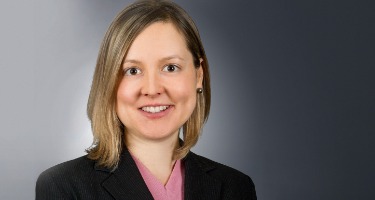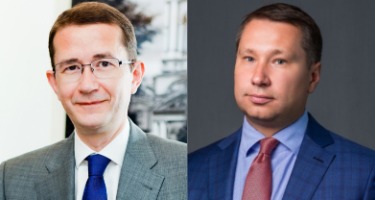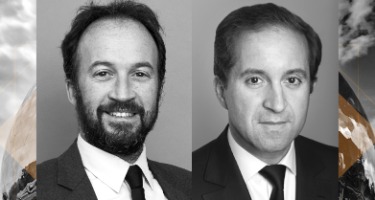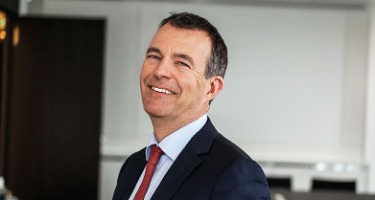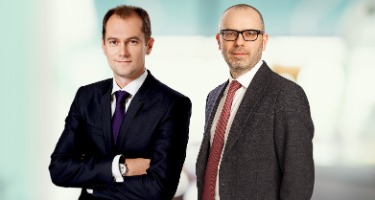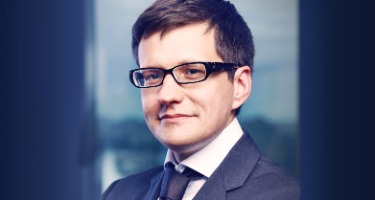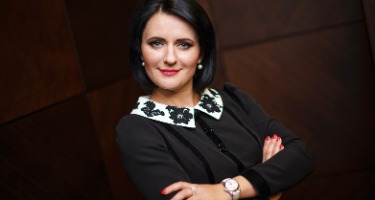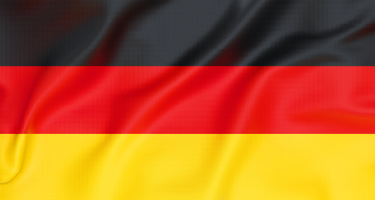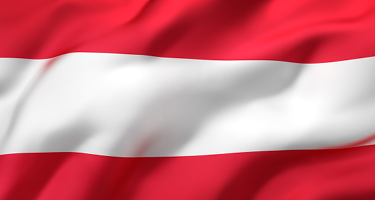For Denis Lysenko and AEQUO—Ukraine's 2020 “Law Firm of the Year” honoree in Mergers & Acquisitions—2014 was an opportunity to begin something special. Lysenko joins Phillip Greer, CEO of Best Lawyers, to discuss how they have actively shaped a new business environment in Ukraine.
It was a transformative year for Ukraine in 2014. How has the legal and business landscape changed in the past five years since the revolution?
Denis Lysenko: The revolution gave some impetus to a younger generation of lawyers to take the lead in the market. We've seen more, what I would call, start-up law firms, enter the scene. Essentially, we were a spin-off at the time, but it felt almost like a new venture for us—pretty successful so far. The last five years also transformed the economy to a great extent. Although we have seen some turbulence in 2015, for example, which was perhaps the lowest year on record for M&A transactions. There was a drop certainly, but then as the country emerged from it and essentially leading up to 2017, 2018 and the current year, the numbers were on the rise. We were, as a firm, very happy to contribute to this growth.
One other thing I wanted to mention is we were doing M&A sector research with Merger Markets for four years in a row since 2015 and the analytics that we did essentially showed us that the economy was really reviving. This was apparently very much on the table in 2018 when there were a lot of new deals coming up in the market, both for strategic investors and, for example, private equity players, that we are focusing on as well.
How did you set a vision for the firm and what was the execution process like? Was it smooth? Were there rough patches? Obviously, you just mentioned rough patches in 2015 for the economy itself, but how was the process for setting the vision for the firm and executing it and do you think you fully executed on all the goals you all sat down and kind of thought about when you formed this firm?
DL: Well, we did focus on several important elements, which we called essentially pillars of our strategy, They are industry focus, innovations, and client care as a standalone process. In terms of industry focus, our partners have identified several key sectors with the highest potential in the local and cross border activities such as energy and national resources, agribusiness, banking, and financial institutions, IT, and several other areas. So that was one direction that we took, and we are happy that it actually led to significant results in the first four years, or now, five years. The second one, innovation, was very important for us because our firm was accumulating young talent from the market, and we felt that we need to offer different ways also of doing business, different ways of structuring our internal business processes and working with the market.
We've invested in a number of IT tools. One example is AEQUO Friends, an innovative online internship program and outsourcing platform, that we launched two years ago, and several other projects that are in the pipeline essentially. We're also contributing to the legal tech market in Ukraine by arranging the annual innovation competition, AEQUO Legal Tech Challenge, now for a third year in a row. Finally, client care is, as I said, a standalone process that we are focusing on. It is essentially a dedicated team of professionals who are in conjunction with our legal team offering full-cycle support for our clients, not just specifically within a separate project but throughout the lifetime of the client experience with our firm. These were three key elements that we have built our strategy on, and I'm pretty sure our firm has ways to go in each of them in terms of developing further and growing the practice. But so far, we've been delighted with the results that we get.
You talked about playing a role in the economic future of Ukraine. What does it feel like having a hand in shaping the economic future of the new Ukraine?
DL: It has been pretty rewarding for us as a business to be involved in some of the particular legislative reforms that were going on in the past five years. To name a few examples, our corporate team was extremely active and really originated a large extent of new legislation on the limited liability and added liability companies, which was a transformative legal act, which brought a lot of flexibility to Ukrainian corporate laws. Deriving it from not just civil law systems but also the common law systems. Then the other colleagues of ours worked quite successfully on assisting the Antimonopoly Committee being the competition authority in Ukraine, on progressing some of its regulations and making the whole decision-making process more transparent and the decisions publishable.
Then we had dedicated teams assist the National Bank of Ukraine develop legislation on dealing with distressed assets. It's called the National Bank of Ukraine Deposit Guarantee Fund, which is a special agency to deal with the insolvent banks to upgrade relevant legislation and make way for the sales of those banks to the market.
Finally, our colleagues were also active in advancing the intellectual property rights protection reform in various ways, both for trademarks and for certain categories of international properties. Essentially, we were quite enthusiastic to be able to contribute to upgrading the legislation. Luckily this was in line with what the international sponsors were focusing on during the last five years, including the European Commission, which was quite active here in supporting the various project offices for reforms with Ukrainian authorities as well as international monetary funds, EBRD and other stakeholders that were essentially granting the necessary technical assistance and funding.
Are there any current or upcoming projects that you are particularly excited about, whether it's for the mergers and acquisition team or if there's any other practice that you're excited about your firm is working on?
DL: We have a number of projects that we are proud of and looking forward to their development. Among them, I would mention Posco International (South Korea), as we helped them make an important investment in the Ukrainian port infrastructure in 2019. Another example—Dragon Capital, the most active Ukrainian private equity house that has grown considerably their real estate and other projects' portfolio in Ukraine, and we were very glad to be of assistance for them.
We are also very keen to see the progress of various Ukrainian companies that are, I would say, trying to outgrow the Ukrainian local market and expand internationally. An example would be a market-leading-agro-industrial holding Mironivsky Hliboproduct (MHP) as well as some Ukrainian pharmaceutical companies that are clients of ours. There are also inspiring examples of corporate transformations in Ukraine. Some of these companies happen to be our clients such as Ukraine's largest company, Naftogaz of Ukraine, being also by far the largest players in the local oil and gas market, which contributes the largest share to Ukrainian state budgets in terms of taxes. It is doing incredible and important work to safeguard Ukraine's energy security interests in the European environment.
This interview has been edited for length and clarity.


